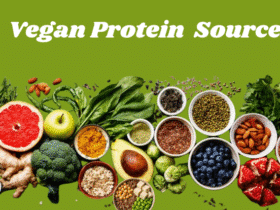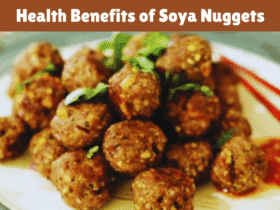In recent years, the world has witnessed a remarkable shift towards more sustainable and health-conscious diets. One prominent trend that has gained substantial momentum is the consumption of vegetarian meat. This article explores the concept of vegetarian meat, its various forms, health benefits, environmental impact, where to find it, how to cook with it, and whether it truly lives up to the taste of real meat.
Understanding the Trend: Vegetarian Meat
Vegetarian meat, often referred to as plant-based or meat substitutes, is an innovative response to the growing demand for ethical and environmentally friendly food choices. It offers an alternative to traditional meat products while attempting to replicate the taste, texture, and nutritional value of animal-based meats.
The Rise of Vegetarianism in India
India, a country with a rich tradition of vegetarianism, has embraced the concept of vegetarian meat wholeheartedly. The shift towards vegetarianism for ethical, health, or environmental reasons has led to a surge in the popularity of these meat alternatives.

Types of Vegetarian Meat
4.1 Plant-Based Meat
Plant-based meat products are made from a variety of plant sources such as soy, peas, and mushrooms. They are often engineered to mimic the taste and texture of animal meat, making them suitable for vegans, vegetarians, and flexitarians alike.
4.2 Jackfruit as a Meat Substitute
Jackfruit, known as the “vegetarian’s meat,” is a versatile fruit that, when prepared correctly, closely resembles pulled pork or chicken. Its fibrous texture makes it a popular choice for vegan BBQs and curries.
4.3 Seitan: The Wheat Meat
Seitan, also known as wheat meat or gluten meat, is made from gluten, the protein in wheat. It has a chewy texture and absorbs flavors well, making it a staple in vegetarian stir-fries and stews.
Also Check:- Vezlay Soya Chaap
Health Benefits of Choosing Vegetarian Meat
Opting for vegetarian meat comes with several health advantages. It is typically lower in saturated fats and cholesterol, making it heart-friendly. Additionally, it provides essential nutrients like protein, fiber, and vitamins, making it a well-rounded dietary choice.
Environmental Impact
The production of vegetarian meat generally has a significantly lower carbon footprint compared to traditional livestock farming. This shift can help reduce deforestation, greenhouse gas emissions, and water usage, contributing to a more sustainable planet.
Where to Find Vegetarian Meat
7.1 Local Grocery Stores
Most local grocery stores now stock a variety of vegetarian meat products. They are readily available in frozen sections or alongside other meat substitutes.
7.2 Specialized Vegetarian Restaurants
Many restaurants, particularly those focused on vegetarian and vegan cuisine, feature dishes prepared with vegetarian meat. Dining out has never been more delicious and environmentally conscious.
7.3 Online Marketplaces
Online platforms offer a wide selection of vegetarian meat products that can be conveniently ordered and delivered to your doorstep. This option is ideal for those seeking specific brands or exotic options.
Cooking with Vegetarian Meat
8.1 Recipes and Tips
Cooking with vegetarian meat can be an enjoyable experience. Numerous recipes and cooking tips are available online to help you prepare delicious and satisfying meals using these meat alternatives.
The Taste Test: Is It Like Real Meat?
One of the most common questions about vegetarian meat is whether it can truly replicate the taste and texture of real meat. The answer varies depending on the type of vegetarian meat and how it is prepared. Some options come remarkably close to the real thing, while others offer unique flavors and textures.
Challenges and Misconceptions
Although vegetarian meat has gained popularity, there are still challenges and misconceptions to overcome. Some people may be hesitant to try it due to preconceived notions about taste or nutritional value. Addressing these concerns can help more individuals embrace this sustainable choice.
A Sustainable Choice
Choosing vegetarian meat is not only a step towards a healthier lifestyle but also a positive contribution to the environment. By reducing the demand for conventional meat, we can play a part in mitigating climate change and preserving our planet for future generations.
Conclusion
In a world where ethical and environmental concerns increasingly shape our choices, vegetarian meat emerges as a delicious and sustainable alternative. Whether you’re a dedicated vegan or simply curious, exploring the diverse world of vegetarian meat can lead to a more conscious and satisfying dining experience.
FAQs
1. Is vegetarian meat a complete source of protein?
- Vegetarian meat can be a good source of protein, but it’s essential to have a balanced diet to ensure you get all the necessary nutrients.
2. Are there any health concerns associated with vegetarian meat?
- Generally, vegetarian meat is considered a healthier option than traditional meat, but like any food, moderation is key.
3. Can I use vegetarian meat in my favorite meat-based recipes?
- Yes, you can substitute vegetarian meat in most recipes that call for traditional meat.
4. Is vegetarian meat more expensive than real meat?
- Vegetarian meat products may be slightly more expensive, but the price difference is often justified by the ethical and environmental benefits.
5. How can I ensure that vegetarian meat is prepared correctly for the best taste and texture?
- Follow recipes and cooking instructions specific to the type of vegetarian meat you’re using for the best results.












Leave a Reply